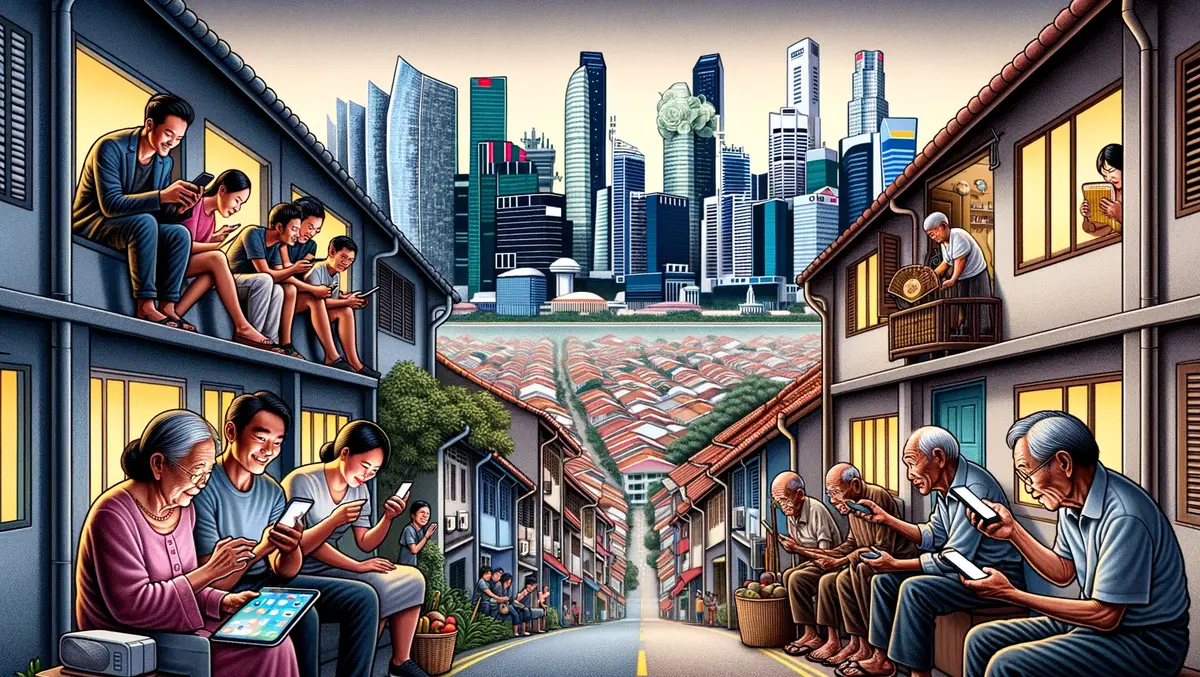
Singapore's digital divide: Wealth impact on tech use
New research commissioned by Yahoo in partnership with Milieu Insight has shed light on the behavioural trends and perceptions pertaining to the use of mobile applications and digital services in Singapore. The study, which surveyed 1,500 users in the country, offers a deep dive into the tech habits of different demographic groups and frames the ongoing discourse about the benefits and challenges posed by the rapid technological advancement in the everyday life of Singaporeans.
Further enhancing Singapore's standing as a leader among the world's smart cities, the study found that a significant 84% of survey participants frequently use mobile applications and digital services in their daily activities, with 64% acknowledging that the benefits of such usage outweigh the challenges. Nonetheless, the research revealed that certain demographic groups, including the Baby Boomers generation and those from lower-income households, are more susceptible to changes and advances in technology.
Cash was reported as the least preferred payment method by 54% of users in Singapore. Ride-hailing services are used at least once a week by 57% of respondents, a figure increasing to 70% among Millennials. Similarly, 57% reported using a mobile app or e-wallet for payment-related matters. However, the pace of technological advancement was deemed to be too fast by 60% of Baby Boomers. Only 76% made frequent use of mobile apps and digital services among those from lower-income households (below S$3,000), compared to the 90% usage rate among those earning at least S$12,000.
The study undertook the investigation of Singapore's high adoption rates of mobile applications and services for daily activities, including payments and transport. However, it also acknowledged a disparity in perspectives regarding the speed of technological advancement, the potential benefits and challenges introduced by new apps and digital services, and how these technological shifts improve people's quality of life.
While the majority of respondents have accepted the transition to a cashless society, with 34% ranking contactless cards as their preferred payment method and 31% favouring mobile e-wallets and digital payment services, cash remains the top payment method among households with incomes below S$3,000 monthly (36%). Contrarily, only 5% of respondents from households earning S$12,000 and more share this preference for cash transactions. Moreover, while a majority of respondents used mobile apps or e-wallets for public transport payments, 76% of those who do not use such digital services stated a preference for using a physical card.
Interestingly, Baby Boomers and lower-income households were found to be distinctly vulnerable to swift tech advancements. Yet, while a majority of Baby Boomers find the pace of change too fast and face difficulties when adopting new services, they generally did not hold negative perceptions towards mobile apps and digital services.
In conclusion, while technological adoption is widespread across all socio-economic segments, the study suggests that factors such as wealth and educational level can impact how users benefit from these digital advancements, highlighting a risk of technologically underprivileged demographics being left behind.


